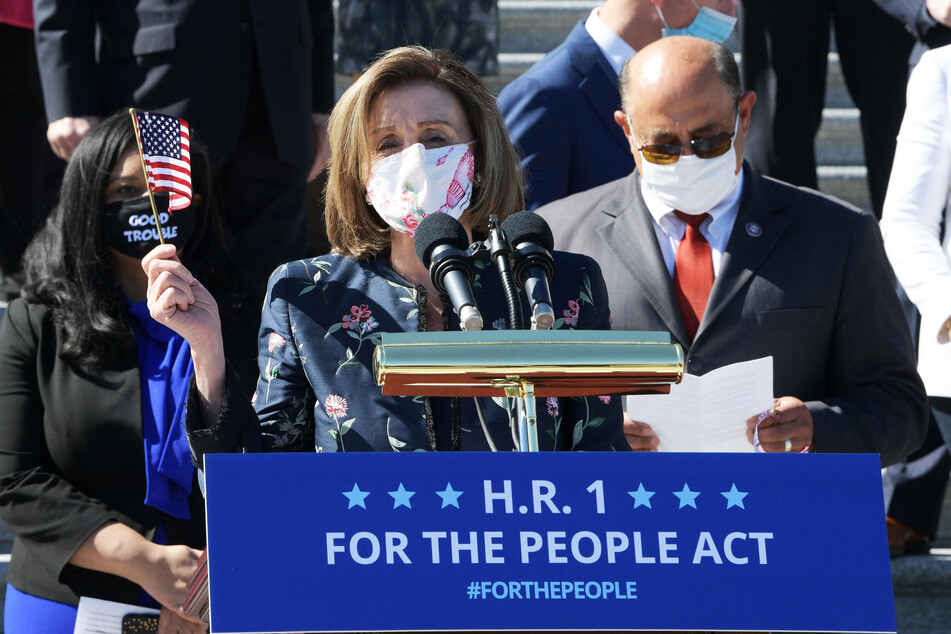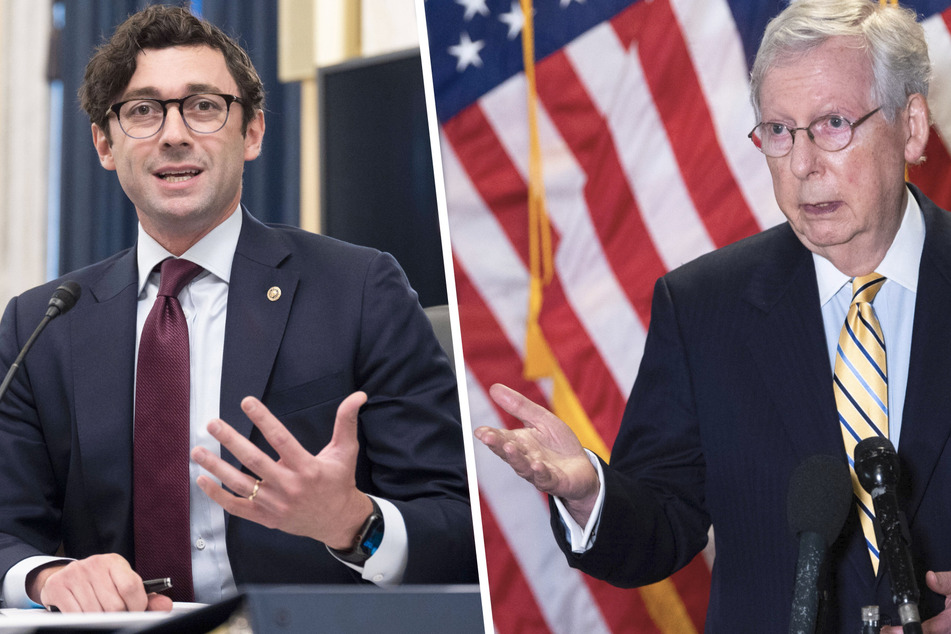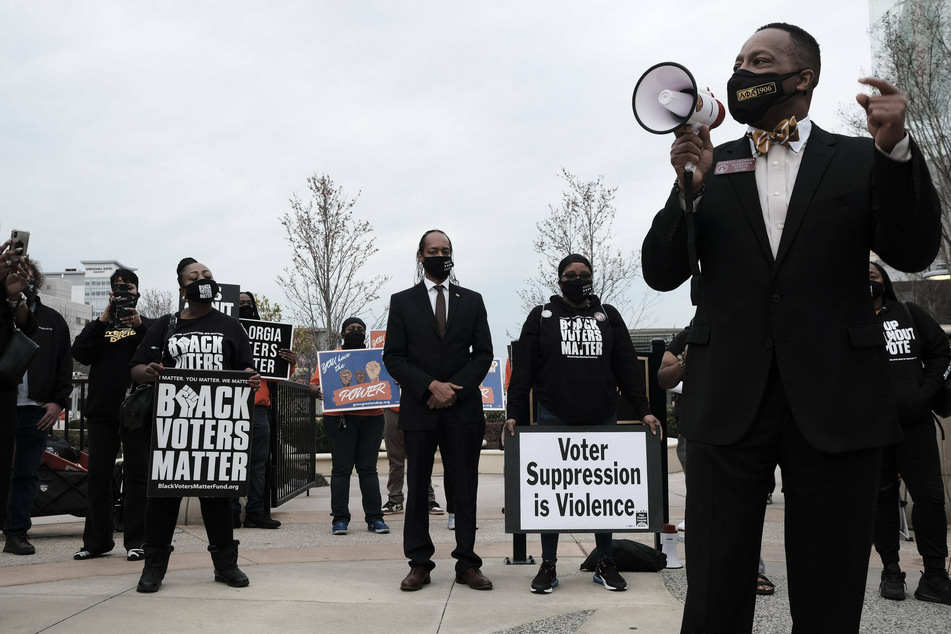For the People Act reaches stalemate in Senate committee as threat of filibuster looms
Washington DC – The For the People Act, a national bill to expand voter access, tied along party lines in the Senate Rules Committee, cementing fears it will stall in the full chamber.

The For the People Act (FTPA), also known as HR1 or S1, is a national bill which aims to provide federal protections for voting rights and access. It's almost impossible to know everything included in the act. After all, the legislation is nearly 800 pages long!
Some of the key elements include ending partisan gerrymandering, instituting a national voter registration system, restoring voting rights of people formerly imprisoned on felony charges, requiring at least 15 days of early voting, and expanding mail-in voting.
The bill also seeks to reduce the influence of big money in politics by requiring super PACs to disclose their donors. Super PACs can raise unlimited amounts of money. Although they can't give those billions of dollars directly to politicians or parties, they can use the money on advertising for campaigns or causes, giving the wealthy an outsized influence in the political process. Knowing exactly who is funding super PACs would first step toward changing that.
If passed, the FTPA would also put a damper on the wave of restrictive voting laws and practices in Georgia, Florida, Iowa, and Texas. What do these places have in common? They are key swing states with Republican-controlled governments. The measures they are pushing have been proven to have a disproportional impact on voters of color, who typically trend blue.
The FTPA would override some of the restrictive tactics that disenfranchise American voters at the state level, but not everyone is convinced of the bill's merits. Republicans, in particular, seem hell-bent on preventing the national reforms.
Indeed, before the bill moved to the Senate, it went through the House, where it did not receive a single Republican vote. Because Democrats have the majority in the lower chamber, they were able to approve the legislation without any bipartisan support.
Senate Rules Committee hearing ends in stalemate

On Tuesday, the FTPA reached the 18-member Senate Rules Committee, where nine Democrats were in favor and nine Republicans in opposition, the New York Times reported. For more than eight hours, a fierce debate raged over many aspects of the proposal.
Some of the GOP points of contention come across as nothing other than petty. They even struck down Democratic Senator Jon Ossoff's proposal to remove bans on giving water to voters in long lines outside polling places, something that now applies in Georgia.
Republicans have largely framed their push for restrictive voting measures in terms of ballot security, though none has been able to provide evidence of fraud in the 2020 or any other election.
During the Rules Committee meeting, Senate Minority Leader Mitch McConnell of Kentucky was careful not to rely on that same rhetoric of election fraud, instead portraying the FTPA as a Democratic power grab: "Our democracy is not in crisis, and we’re not going to let one party take over our democracy under the false pretense of saving it."
McConnell has denied that GOP voting laws are about disenfranchising people of color or decreasing turnout among blue-leaning demographics, even though there's plenty of evidence that this is exactly what Republican-driven restrictions are doing.
During the committee hearing, the Republican leader also raised specific objections about campaign finance laws. McConnell himself has benefited from large sums of undisclosed and unlimited funding – and it seems he's not about to give that up without a fight.
"The public should have the right to know who is putting significant resources into influencing the views of the voters," Ossoff countered.
What's next for the For the People Act?

Because of the Senate committee stalemate, the bill cannot proceed directly to a full Senate vote. Majority Leader Chuck Schumer of New York will first have to hold a vote on whether to advance the legislation.
The biggest obstacle FTPA supporters face is the filibuster, which would require 60 Senate votes in favor of advancing the legislation.
With an evenly divided Senate and at least one Democrat, Senator Joe Manchin III of West Virginia, in opposition, getting those 60 votes is highly unlikely.
Some Democrats are calling on leaders to use this opportunity to ditch or significantly alter the filibuster rules.
Progressive activists have long described the filibuster as unfair and unrepresentative. Eli Zupnick, spokesperson for Fix Our Senate, which seeks to abolish the filibuster, stated, "There is no way out. There is no third option. It is either the filibuster or the For the People Act."
On Thursday, a group of Democratic lawmakers plans to meet privately to discuss possible ways forward, an inside source revealed to the New York Times.
For many voters of color, particularly in places like Georgia, Florida, and Texas, the stakes are as high as they could be: without the national-level protections afforded through the FTPA, state laws may place further limits on political self-determination for generations to come.
Cover photo: Collage: IMAGO / ZUMA Wire, IMAGO / UPI Photo

